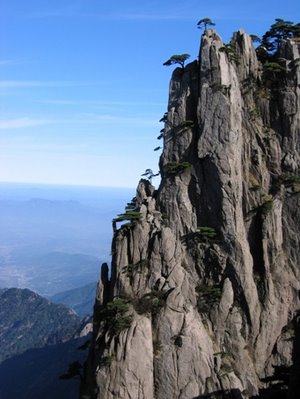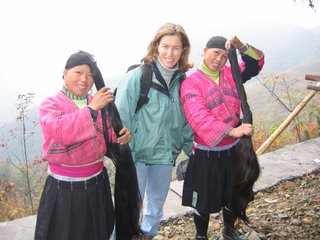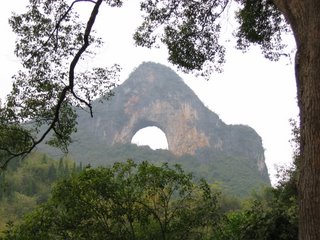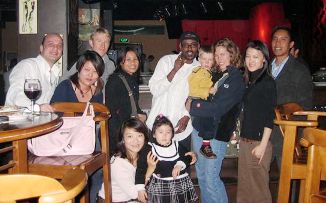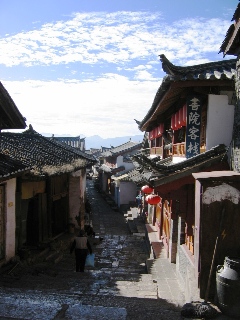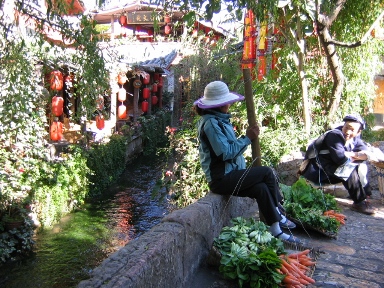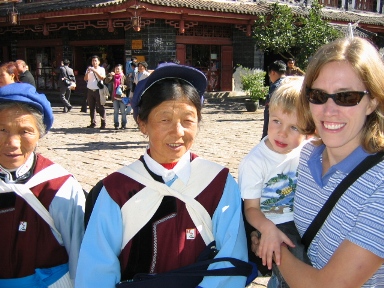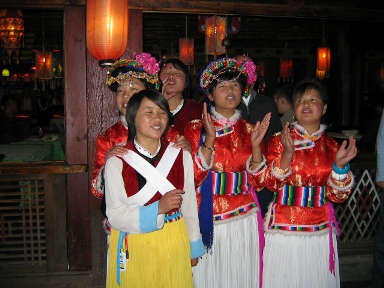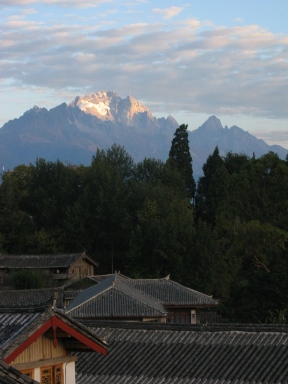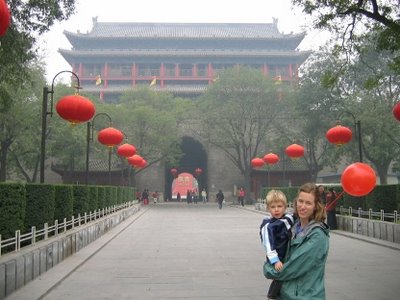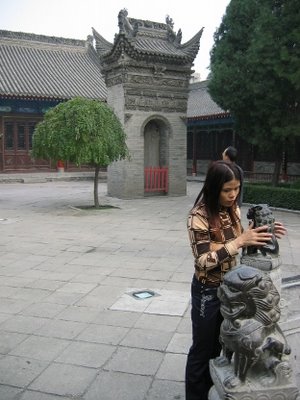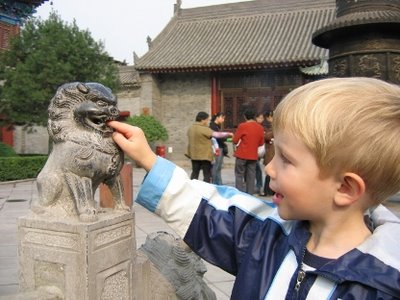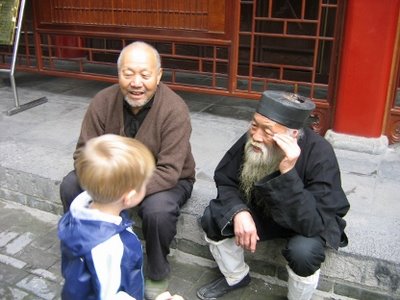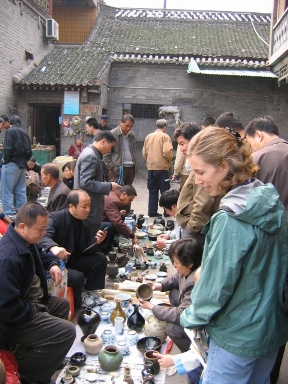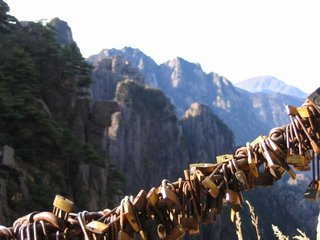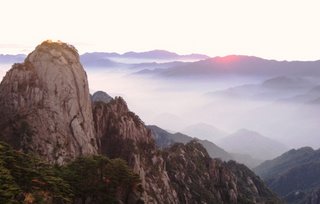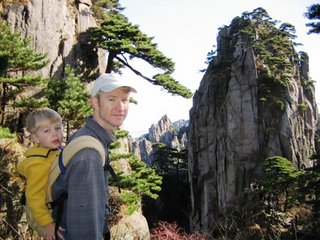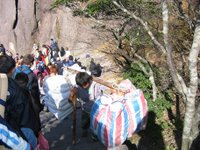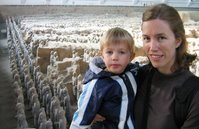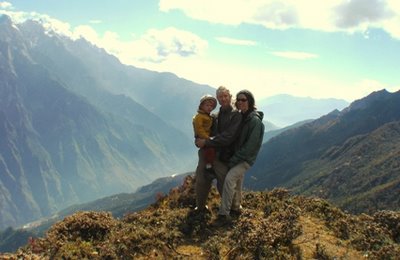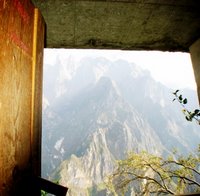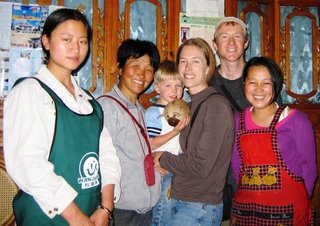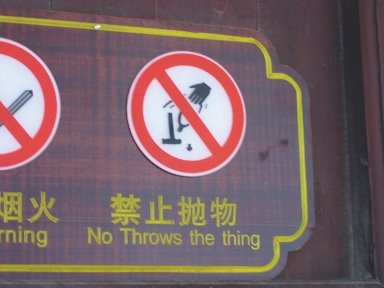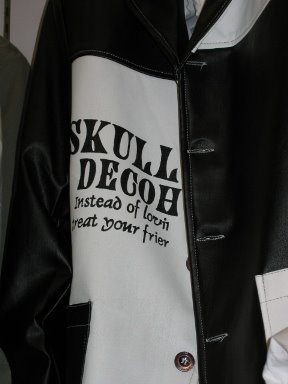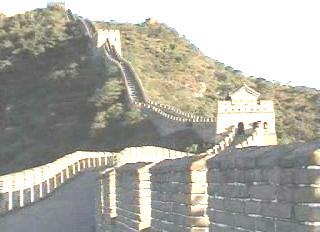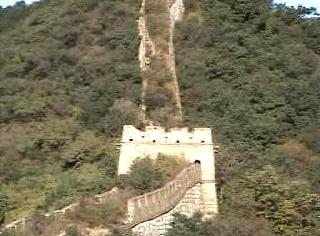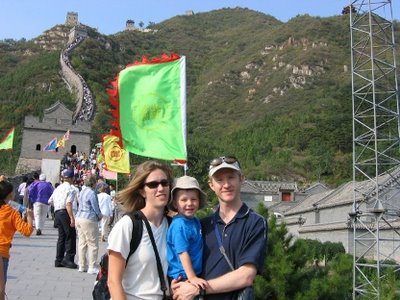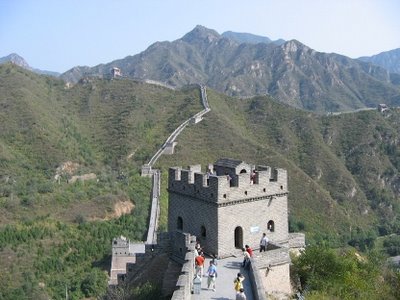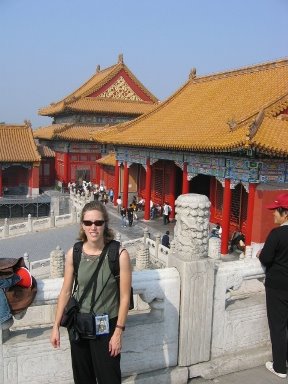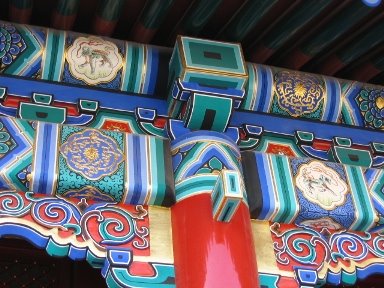Amy already blogged about Yellow Mountain (Huang Shan), but I want to share a few more photos and stories about this site, with it's impressive Yosemite-esque geology, and throngs which put Yellowstone on the 4th of July to shame. We stepped on a public bus in Hangzhou with about 10 of my colleagues from the US and China, and heard a short speech about and the bus rules, which prohibit smoking. Of course, the speech was in Mandarin, but my colleague translated this one bit of welcome news for me. But alas, I as I've mention before, the Chinese aren't much for rules, and a few blocks into the ride, out came the
cheap cigs. The offending passengers graciously agreed to snuff out their smokes, but a short while later, the foul odor began again. I walked the length of the bus, but couldn't find any lit cigarettes. "Did someone light up and finish it off in a few short drags?" I thought to myself. A while later, the same thing again, but still I couldn't locate the culprit. Finally, I found him - sitting behind the wheel of the bus. After asking politely but firmly, Mr. bus driver stopped smoking. After that, we could sit back and enjoy the Chinese-dubbed version of the 1980's American B-movie
Ministry of Vengeance on the bus video monitor. Don't rush out to your local video store for this one folks - I'm pretty sure English dialogue wouldn't have made it any better.
But I digress - this was supposed to be about awe-inspiring mountains, wasn't it? For starters, let me provide some context. Hiking in China means tromping on stone stairways, not primitive trails. It also usually means cable cars, which hoist throngs of chain-smoking Chinese tourists to heights which would otherwise be inconceivable. The local government sure is getting their piece of the action, charging an exorbitant 200 RMB ($24) for the privilege of setting foot on the mountain, and the cable car costs another 65 RMB ($8) - one way! That's a small fortune for the average Chinese person, folks. The only common folk who are gonna hike Huang Shan are the porters who ferry food, drinks, kerosene, and hotel linens up and down the 5000+ vertical feet of stone steps. It's actually cheaper to pay people to carry these goods up and down on bamboo poles than to load it into the cable cars. Even 30 feet long steel rebar is carried up on porters' shoulders. Unbelievable.
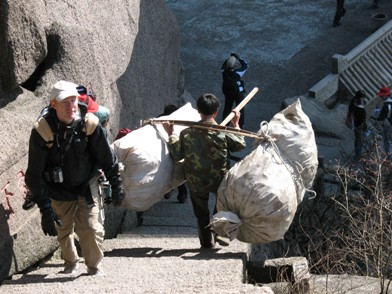
Did I mention steps? These aren't your ordinary steps. You see, the granite crags here are nearly vertical in spots, so the Chinese actually carved steps right out of the granite. Amy and my co-worker, Spring Chen, demonstrate the trails in these photos.
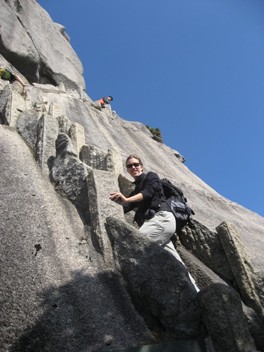

Our group actually
earned the summit by hiking the whole mountain, and it was well worth it. The steep climb was breathtaking, and so was the scenery. But possibly the best part was that the difficulty of the climb kept the throngs at bay, so we could enjoy the hike in relative peace. The summit of Celestial Capital Peak, at 1810 meters, was a worthy destination for our BoldTech group.
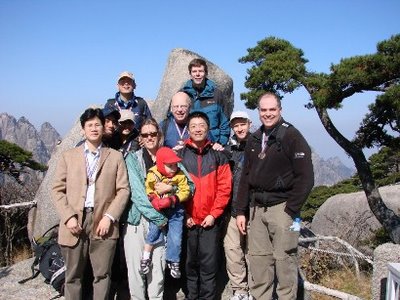
Just below the summit, as we ventured toward the growing crowds, is a narrow fin of rock known as the fish back, which is no place for anyone who fears heights.
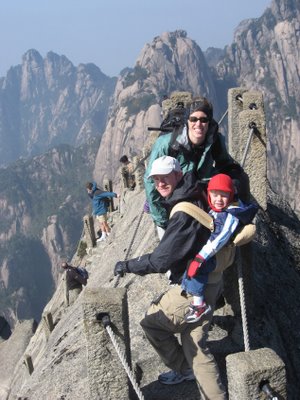
Did I mention crowds? We're actually fortunate that it's mid-November. A few months ago foot traffic was so heavy that a rail divided the main trails to separate each direction of traffic, and police patrolled the trails to force people to move along.
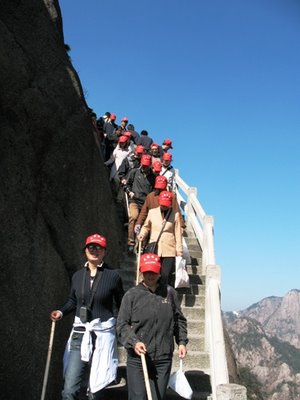
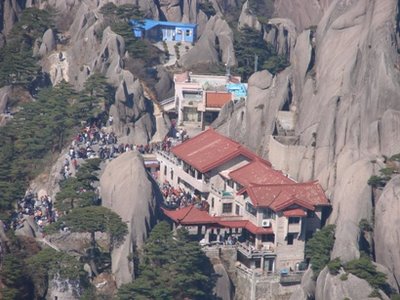
But there's a good reason so many thousands of Chinese visit this place on any weekend. It's simply spectacular. No wonder it has inspired generations of Chinese artists and adventurers.

